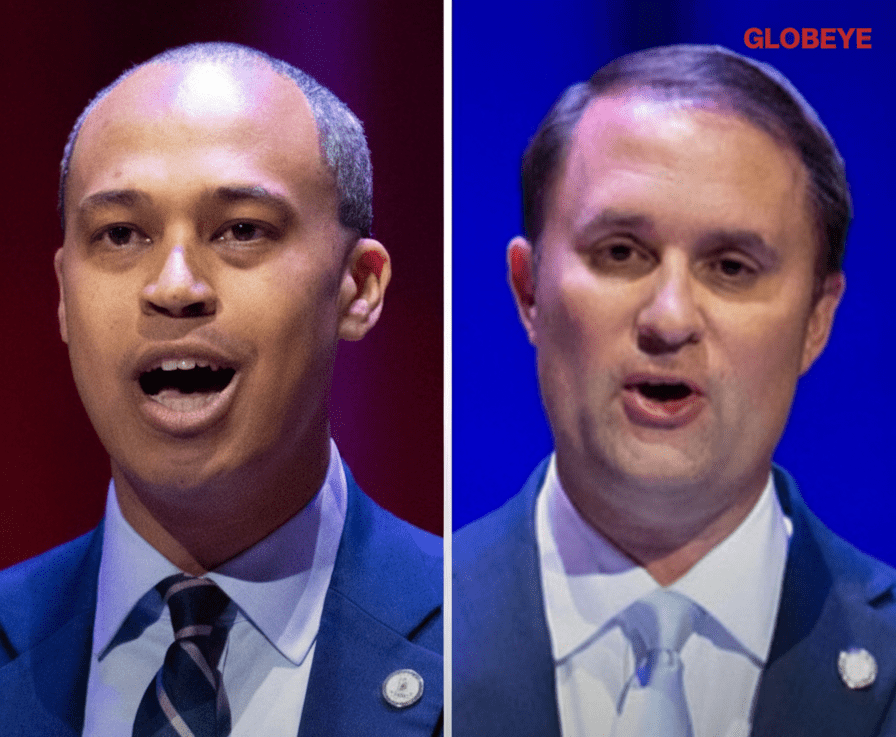How Democrat Jay Jones Snatched the Virginia Attorney General’s Office from GOP Incumbent Jason Miyares Despite a “Two Bullets to the Head” Text Scandal
In a stunning twist that stunned Virginia and sent reverberations through the national political scene, Democrat Jay Jones defeated incumbent Republican Attorney General Jason Miyares in the November 4, 2025 election. What made the victory even more remarkable was that just weeks earlier, Jones was embroiled in a scandal of his own making—text messages from 2022 resurfaced in which he had written that Republican Delegate Todd Gilbert “gets two bullets to the head.” The comment, widely condemned by both parties, placed the race squarely in the spotlight for how the public weighs character and controversy in modern politics.
Jones, a former member of the Virginia House of Delegates representing the 89th district and once a Washington, D.C. assistant attorney general, emerged as the Democratic nominee in the June primary and immediately became a focal point of campaign scrutiny. Large sums flowed into his campaign, including a reported $1 million boost from the Democratic Attorneys General Association, signaling national interest in flipping the AG’s office. Meanwhile, Miyares, the first Hispanic-American elected statewide in Virginia and serving as AG since 2022, tried to leverage Jones’s texts and other controversies as evidence of unfitness for the job.

As the general election loomed, a Washington Post-Schar School poll showed the scandal erasing Jones’s earlier lead and tying the race at 46 percent apiece. Despite this apparent setback, Jones held firm, repeatedly apologizing for his past language and reaffirming his commitment to public service. His campaign argued the issue was about policy, justice and the rule of law—not just rhetoric.
Voters in Virginia delivered their verdict on election night: according to projected results, Jones captured approximately 51.7 percent of the vote to Miyares’s 47.9 percent, according to state result reporting. The win signals a shift in the Old Dominion, where voters weighed both the scandal and the larger snapshot of state and national issues—economy, law enforcement, rights and trust.


The campaign itself centered on a sharp contrast between the two men. Miyares ran on a tough-on-crime agenda, referencing his work on fentanyl, illegal immigration and liberal school policies. Jones hammered back, positioning himself as a protector of the people who would push against corporate interests, uphold community rights and use the AG’s office as a check on federal overreach. In campaign questionnaires earlier in the year, Jones emphasized consumer protection, affordable energy, and standing up to big business. Miyares portrayed himself as the candidate who stood with law-enforcement and traditional values.
Yet beneath these policy debates a deeper question emerged: can voters look past personal missteps when they believe a candidate’s vision speaks to their own frustrations and desires for change? Jones’s win suggests the answer, at least in this race, is yes. The controversy did not prevent him from overtaking a sitting attorney general in a close but decisive victory.

For Miyares, the loss raises profound questions about his political future and the broader Republican strategy in Virginia. Having served since January 2022 as AG, he defended his record but was worn by the challenge of national trends, local dynamics and the text-message scandal that his campaign used but could not overcome. His role in the Trump-era law-enforcement realignment may have helped him, but Jones’s appeal and organizational effort proved stronger.
For Jones, the transition to attorney general will come with scrutiny, expectation and the opportunity to prove his office can be one of reform and enforcement, not just partisanship. He must contend with his past language while demonstrating leadership in an environment where public trust is fragile. His victory also reflects broader currents: in a year when Virginia votes for governor, lieutenant governor and attorney general simultaneously, the Democratic sweep—if confirmed across other races—could mark a turning point in the region’s political configuration.

Critically, the outcome will be watched by both parties as a bellwether for 2026 and beyond: whether scandal can be overcome, whether policy can trump personality, whether voters will reward change or continuity. Virginia has spoken, and whatever the next chapter holds, it begins with a man who once stood on the other side of controversy and emerged a victor.


